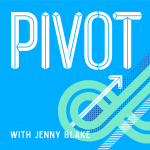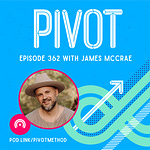Holding space for thousands of others, primarily those who have experienced unspeakable trauma, is not for the faint of heart, nor should it be swept under the rug as simply par for the course of doing social work.
Today’s guest, Dimple Dhabalia has written a forthcoming book that’s part memoir, part manifesto—Tell Me My Story—Challenging the Narrative of Service Before Self—a must-read for humanitarian professionals. While working in the field in Zambia interviewing asylum-seekers from the Rwandan Genocide, she experienced autoimmune disease and recurring nightmares that she spent the last decade figuring out how to heal and solve for fellow service-oriented professionals.
In this conversation, Dimple shines an important light on what it’s really like to serve in this capacity, and how to do it sustainably. Only by addressing the debilitating side effects of burnout, compassion fatigue, and vicarious trauma, can humanitarian workers heal themselves while so generously serving others.
More About Dimple: Dimple Dhabalia is the founder of Roots in the Clouds, a boutique consulting firm specializing in using the power of story to heal individual and organizational trauma and moral injury. She is also a writer, podcaster, coach, and facilitator who brings over twenty years of public service experience working at the intersection of leadership, mindful awareness, and storytelling. Her first book, Tell Me My Story—Challenging the Narrative of Service Before Self launches in February 2024, and you can find her podcasts Service Without Sacrifice and What Would Ted Lasso Do? wherever you listen.
🌟 3 Key Takeaways
There are five nervous-system survival reactions: fight, flight, freeze, fix, and fake.
Moral injury: making choices that go against our own deeply held moral beliefs.
There is a five-step process for moving through service-oriented work more sustainably: shaping, surviving, seeing, shifting, and sharing.
✅ Try This Next
Notice one moment of your day where you’re trying to push through. Allow yourself to stop and take three nice, deep breaths. Come back and see how you feel.
🔗 Resources Mentioned
Substack: Dear Humanitarian
Video: Leading Through Crisis—Human-Centered Leadership
TV Show: Ted Lasso on Apple TV+
Kajal Dhabalia’s Wholesome Soul
📚 Books Mentioned
Tell Me My Story—Challenging the Narrative of Service Before Self
Expressive Writing: Words That Heal by James W. Pennebaker
🎧 Related Episodes
Dimple’s podcasts: What Would Ted Lasso Do? and Service Without Sacrifice
Pivot: 173: Beautiful Questions for Challenging Times with Steve Morris
Free Time: 063: On Burnout and Business Intuition with Azul Terronez of Authors Who Lead
❤️ Enjoying the show? I'd be grateful for a rating and/or review! Even better? Share this episode with a friend :)
💌 Get my curated twice monthly PivotList newsletter
✍️ Connect with me on Substack: http://substack.com/@jennyblake
💻 Check out Pivot courses on LinkedIn Learning: Figuring Out Your Next Move, Holding 1:1 Career Conversations, Managing Introverts, Coaching New Hires, and Coaching New Managers
💬 I’d love to hear what’s on your mind! Take the Pivot listener survey
☎️ Submit a question or comment for future episodes
🎧 Make sure you’re subscribed wherever you listen to ‘casts
📝 Check out full show notes at http://pivotmethod.com/357














